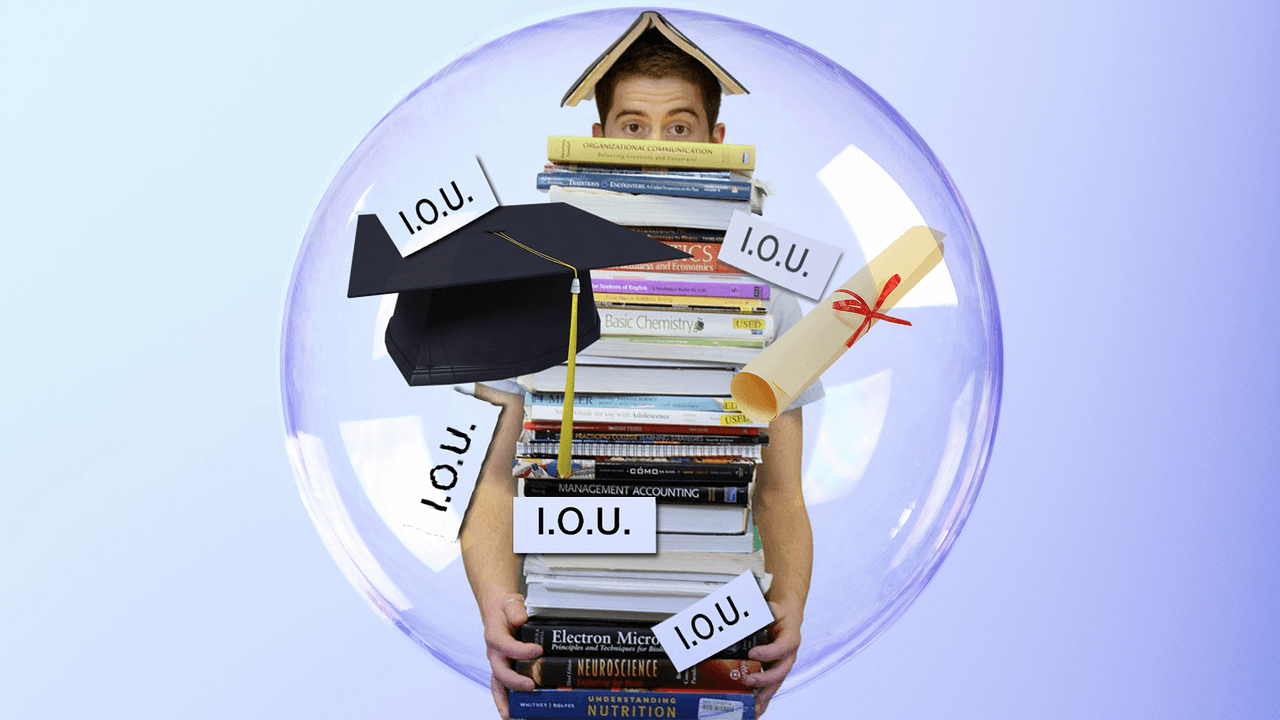Student-centric advice and objective recommendations
Higher education has never been more confusing or expensive. Our goal is to help you navigate the very big decisions related to higher ed with objective information and expert advice. Each piece of content on the site is original, based on extensive research, and reviewed by multiple editors, including a subject matter expert. This ensures that all of our content is up-to-date, useful, accurate, and thorough.
Our reviews and recommendations are based on extensive research, testing, and feedback. We may receive commission from links on our website, but that doesn’t affect our editors’ opinions. Our marketing partners don’t review, approve or endorse our editorial content. It’s accurate to the best of our knowledge when posted. You can find a complete list of our partners here.
Do Student Loans Have Prepayment Penalties?
 By
Cece Gilmore
By
Cece Gilmore 
Cece Gilmore is a Content Writer at Scholarships360. Cece earned her undergraduate degree in Journalism and Mass Communications from Arizona State University. While at ASU, she was the education editor as well as a published staff reporter at Downtown Devil. Cece was also the co-host of her own radio show on Blaze Radio ASU.
Full BioLearn about our editorial policies

Annie has spent the past 18+ years educating students about college admissions opportunities and coaching them through building a financial aid package. She has worked in college access and college admissions for the Tennessee Higher Education Commission/Tennessee Student Assistance Corporation, Middle Tennessee State University, and Austin Peay State University.
Full BioLearn about our editorial policies

Maria Geiger is Director of Content at Scholarships360. She is a former online educational technology instructor and adjunct writing instructor. In addition to education reform, Maria’s interests include viewpoint diversity, blended/flipped learning, digital communication, and integrating media/web tools into the curriculum to better facilitate student engagement. Maria earned both a B.A. and an M.A. in English Literature from Monmouth University, an M. Ed. in Education from Monmouth University, and a Virtual Online Teaching Certificate (VOLT) from the University of Pennsylvania.
Full BioLearn about our editorial policies

While paying back student loans can be a challenging time for many students, some students are able to pay off their student loans early. These students may wonder if there is a prepayment penalty student loan fee. The good news is that the answer is no! Keep reading below for some helpful information about student loan prepayment!
What is a prepayment penalty?
Prepayment penalties are financial fees for paying off a loan early. Prepayment penalties were designed to make banks money because if an individual pays off their loan early, the bank loses out on interest charges.
Do student loans have prepayment penalties?
No! Neither federal nor private student loans have prepayment penalties. Prepayment penalties typically apply to other types of loans, such as a mortgage. This is in thanks to the Higher Education Opportunity Act of 1965 which states students who take out a loan may “accelerate without penalty repayment of the whole or any part of the loan.” In 2008, the Higher Education Opportunity Act was revised to allow the prepayment of private student loans without a penalty.
Should you pay off your student loans early?
Even though there is no prepayment penalty for student loans, it begs the question of whether you should pay off your student loans early. Let’s take a look at factors to consider when thinking about paying off your student loans.
Essential living expenses
The first and primary goal when paying off your student loans is to ensure that there is enough money left over to cover essential living expenses. Therefore, if you only have enough money to prepay your student loans, but cannot afford to pay for other expenses, it may not be worth it to prepay your student loans at that time.
Existing loan obligations
Another factor that is important to consider is any other debts or loans you may have that should be prioritized over your student loans. Student loans usually do not have as high of interest as other types of loans or debt (such as credit cards). Therefore, you should prioritize the higher interest loans or debt you may have over student loans.
Also see: Top grants to pay off your student loans
Pros of prepaying off student loans early
- You will save money by paying less interest over the life of the loan
- Being free from student loan debt can allow you to focus on other financial goals
- It will become less stressful managing other loans
Cons of prepaying off student loans early
- You could lose out on a loan forgiveness program, especially if you work in the public sector
- Your budget may have to be stricter than if you paid off your student loans later
- You may not be able to reach your other financial goals as fast
Tips for paying off student loans quickly
Pay off more than the minimum due
If possible, pay off more than the minimum amount needed per month. This can be as little as $20 extra per month to help you chip away at your loan faster.
Pick up a part-time job
Extra income from a part-time job can help pay down your loans. Having an extra source of income allows you to put more money towards your loans without having to sacrifice other financial necessities.
Refinance your student loans
If you qualify for a lower interest rate, you can refinance your student loans which helps lower your monthly payment. However it is important to note that if you refinance a federal student loan into a private loan, you will lose access to federal benefits. This includes the possibility of forgiveness, flexible repayment plans, and the option to defer your loans.
Further reading: How to consolidate and refinance student loans





